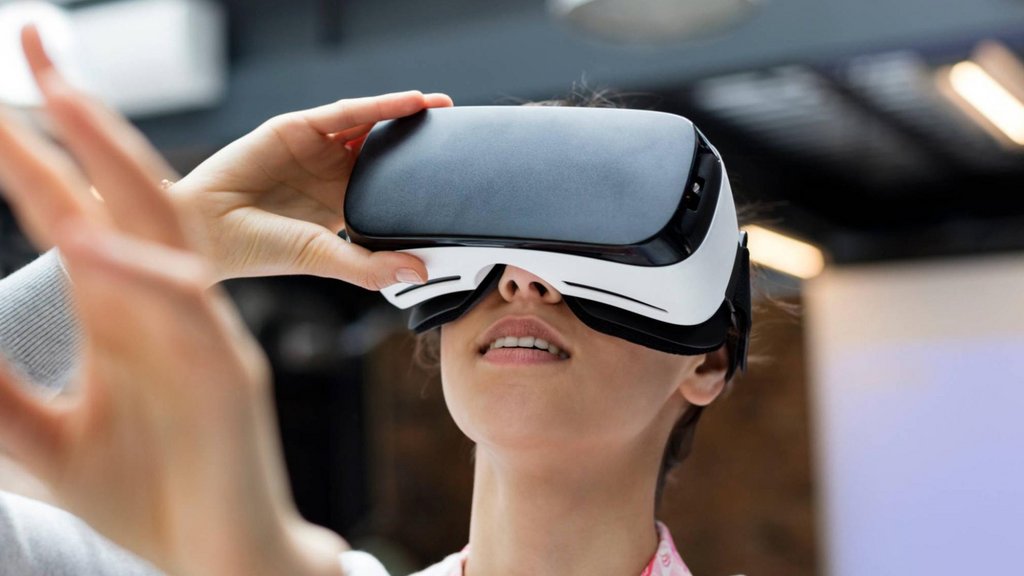Why the metaverse needs works councils
15.05.2023 | The word sounds like science fiction. However, the effects on the world of work are real: The "metaverse" is a new place of work and a new work tool. In this interview, Detlef Gerst and Vanessa Barth (IG Metall headquarter in Frankfurt/Main) talk about opportunities and risks - and why the metaverse should not be a space free of co-determination.
Dear Detlef, everyone is now talking about the "metaverse". What do we mean by this - and in what way does this describe something new and unprecedented?
Detlef Gerst: There is no single definition for the term. Some imagine the one, all-encompassing virtual space into which people immerse themselves with VR headsets. This idea belongs to the world of marketing. It has nothing to do with reality. But there are a variety of virtual spaces in which people meet using a wide range of technology. A virtual meeting or training session is already one of them, but so is a virtual tour of a training workshop on a PC. Some, but by no means all, of these applications are new. What is new is that these examples are now invariably referred to by the buzzword metaverse.
Do the applications subsumed under the term metaverse already have a noticeable impact on the world of work today?
Yes, working in virtual spaces is already changing the world of work. It makes it possible to meet or work together regardless of one's location. 3D visualisation and virtual work environments provide an impression of great realism. On this basis, even the immediate visualisation of products or production sites that do not yet exist in reality becomes possible. The more powerful and widespread the technology becomes, the more work processes and therefore skills will change. In any case, for a trade union it is necessary to keep an eye on developments.
How and for which kind of activities is the metaverse currently used by companies?
Primarily for meetings, conferences, corporate events, but also for trainings. In the “Avatar Hospital” of the University Hospital Essen, doctors can virtually prepare operations or medical-technical trainees can be trained in the correct positioning of patients in computer tomographs. At the Hilti company, people interested in apprenticeships can take a virtual tour of the workshops. Another example is development activities that take place in virtual laboratories. BMW Group and NVIDIA are developing a virtual room for factory planning. This can significantly increase the speed and quality of planning.
Dear Vanessa, what opportunities, and also what problems, are opened up by the spread of the metaverse?
Vanessa Barth: Inspiring and "reality-like" virtual workplaces allow a new quality of virtual collaboration, they expand spatial and temporal flexibility for employees. People with disabilities, for example, can overcome some barriers of the physical world in the metaverse. On the other hand, the metaverse poses new risks in terms of data security and also health protection. VR glasses collect large amounts of new data, they measure eye movements, the condition of the pupils and many other parameters. At the same time, they trigger nausea and dizziness in many people. According to studies, women are affected more often than men.
Why is it important to ensure that the metaverse does not become a co-determination-free space?
Vanessa: The metaverse is a new workspace and a new work tool. It is important, for example, that this does not lead to employees being excluded from it. At the same time, no one should be forced to work in the metaverse while so much is still unexplored, such as the effects on health.
What can the works council already do today?
Vanessa: In the companies where such applications already exist, works councils should definitely contact the employees who are involved and ask about their experiences and needs and organise a room for exchange. It’s also helpful to put on VR glasses yourself and take some first steps in the metaverse. This is a very impressive experience and sensitises people to the challenges and new possibilities. As a place of work, the metaverse should of course not only be designed by employers, but in collaboration with works councils and trade unions.
Created by: Malte Roehricht

